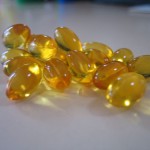Omega-3 fatty acids good for the heart, bad for prostate
Omega-3 fatty acids have been linked to better cardiovascular health leading some health experts to promote fatty fish and fish oil supplements to patients at risk of developing heart disease.
But a new study appearing in the April 25 issue of the American Journal of Epidemiology suggests that, while omega-3 fatty acids may benefit the heart, high levels may damage the prostate.
Medical researchers at the Fred Hutchinson Cancer Research Center in Seattle, Washington examined 3,400 men across the United States who ate fatty fish as part of their daily diet, and discovered that those with highest concentrations of DHA (docosahexaenoic acid), a type of omega-3, are 2.5 times more likely to have an aggressive type of prostate cancer.
Surprisingly, those with high levels of trans-fatty acids commonly found in processed foods and linked to heart ailments have a 50 percent lower chance of developing aggressive prostate cancer.
While saying they were stunned with the results, the research team nevertheless said that what the findings show is the "complexity of nutrition and its impact on disease risk, and that we should study such associations rigorously, rather than make assumptions."
The researchers led by Theodore M. Brasky, who is a research fellow at the Cancer Prevention Program at Huthchinson, said that men who are at risk of developing heart disease should continue eating fish or take supplements of omega-3 fatty acids because the benefits outweigh the comparative risks.
Most dieticians recommend a healthy and balanced diet of fish, vegetables and other high-fiber food to reduce the risk of heart disease while taking omega-3 fatty acid supplements in modest amounts.
